|
I'm a huge fan of people who lead animal rescue groups. They are some of the hardest working people I know, often to their own personal detriment. Most work full-time jobs, are not compensated for their work and rely on volunteers and foster homes to keep animals alive. I feel confident that people who start rescue groups do so with a singular goal in mind: to help save the lives of animals. As a proponent of the No Kill Equation which can be used by any animal shelter to end the destruction of healthy and treatable shelter animals, I know that shelter relationships with rescues are incredibly important toward getting animals out of shelters quickly. Rescue group liaison is one of the 11 elements of the Equation which works in concert with other elements to reduce shelter intake and increase shelter output. But rescues cannot be the solution. Shelters which have relied too heavily on rescue groups to remove animals from the building without including other programs have faced incredible challenges in the last year because rescuers simply cannot bear the burden of change for our society. I have never run a rescue group. My work is more in advocacy and education lanes of travel as I look at the bigger picture of why so many rescue groups are needed in the first place. I believe both types of work are important. Rescue groups cannot be THE solution for all companion animals in our society and if we don't work to reform the system, rescuers are forever doomed to save more and more animals as animal populations grow in any given community. That's where advocacy, more specifically political advocacy, comes into play and that has been a personal focus of mine for more than a decade. I blogged a few years ago about problems with angry rescuers of which there are many. I've been reminded of this a lot lately as I see posts and comments on social media which are incredibly hostile toward the public - the very same public rescue groups need to adopt, foster, volunteer and donate. I won't restate the positions from my 2019 blog here. I upset a lot of people with that blog, but I stand by the primary message: animal problems are really people problems and you can't help that many animals if you can't get along with and be compassionate towards people. I also blogged about adoption fees set by rescues and how some rescues price their animals out of the market. I still stand by the position that the adoption fee charged for a particular animal says more about the value of the animal than the value of some arbitrary amount of money. House of Little Dogs, Inc. still has no set adoption fee and it has served the organization well for years. I would like those in the rescue community to consider two different changes to their mission as they see to help animals. Change 1: Please Considering Shifting At Least Some of Your Mission to Helping the Public The city where I work is what I call "rescue heavy." It has a couple dozen rescue groups which I see as the result of the tax- funded animal shelter doing such a terrible job for so long. Animals died by the thousands at the city shelter year after year after year (before the city finally embraced change due, at least in part, to pressure from the public and political advocacy) so people kept forming rescue groups to try to handle the work not being handled by municipalities. When people ask me now about whether or not they should start their own rescue group in my area with the mission to place animals in new homes, my answer more often than not is "no. Please don't." There are animals in need all over. That cannot be denied. But each new rescue group is competing for the same adopters, the same foster homes, the same volunteers and the same donors. Saving the lives of animals is commendable, but helping the public keep the animals they have is equally important as far as I'm concerned. Whenever I look at shelter records regarding animals found running at large, I think the same thing: they all belonged to someone. And whenever I look at shelter records regarding owner surrendered animals, I have similar thoughts: many of the animals could have stayed in existing homes through shelter intake diversion. If we want fewer animals entering shelters and fewer animals needing rescue (either from those shelters or directly from the public), focusing on people first is incredibly important. Dogs can be kept from running at large by helping people understand how to keep dogs contained through information or through hands on help in the form of large pens, run/trolley lines or DIY coyote rollers for fence jumpers. And before people get upset and demand that all dogs live inside all the time, that's just not the way our society works. Some dogs are inside/outside dogs who spend some time inside and some time in a fenced yard. Some dogs live outside all the time. We have to admit there are different cultures in our society related to dogs, encourage people to have their dogs live inside but then stop judging them if they do not. Providing help to those people willing to accept help goes much farther toward reducing shelter intake than judging people for failing to conform to our values. Dogs and cats can also be kept in existing homes, or new homes can be found for them, by providing help to people to determine why they think they need to surrender their pet to a shelter or a rescue group. Our relationships with companion animals are emotional and the truth is when life is hard, we often don't think as clearly as we should. Sometimes people need help with pet food. Sometimes they need help to pay for veterinary care. Sometimes a job is lost or someone has to move so they need temporary foster of their animals until they can get them back. Sometimes cats mark inside a house or will not use a litter box due to a medical issue or conflict with another animal in the household. Sometimes a dog or cat is displaying some behavior the owner has not been able to resolve and which may be the result of some underlying medical condition which can be diagnosed and treated. Sometimes dogs engage in behavior the owner does not know how to correct, or which is ignored for far too long in hopes it will go away. Those dogs and people can be helped by some guidance and perhaps some free training. In cases where an issue cannot be overcome through counseling and help and an animal must have a new home, people can be provided information on how best to re-home their pet with a family member, friend, co-worker, someone they know through church or a social organization or even with the help of their veterinarian. This reduces stress not only on the family re-homing the pet but on the pet him or herself. If you currently run a rescue group, pulling animals from shelters or taking them directly from the public, please consider shifting your mission (or at least part of your mission) to help people instead. You would still be helping animals. You would just not be helping by taking possession of them yourself. By providing judgment free help to the public to help them overcome problems, fewer animals would need to be rescued as we rescue the people needing help instead. More than half of American households live paycheck to paycheck and are one crisis away from being unable to care for their children, let alone their pets. Before spouting off that someone "should not have pets if they can't afford them," give some thought to your own personal situation and how close you may be to needing help yourself. Change 2: Please Consider Helping Local Animals First Related to rescuers being some of the hardest working people I know, often to their own personal detriment, the most responsible rescuers with whom I interact set limits for themselves whereas those who do not set limits tend to "flame out" or simply walk away after a certain amount of time. I was explaining the concept of limits to a contact the other day. Rescue X cannot save all the companion animals on the planet, cannot save all the companion animals on the continent, cannot save all the companion animals in the United States and cannot save all the companion animals in a particular state. It's just not possible. For at least the foreseeable future, the need for animals (and people) to be helped by rescue groups will always be greater than the ability of any one group to help all the companion animals. Recognizing that, it makes sense to focus on helping animals inside a particular geographic area or hub first as a service area - and before helping animals from other areas who are brought into the location where the rescue is based. This issue comes up a lot in the state where I live and particularly in the city where I work and where I have advocated for animal shelter reform for over a decade with a degree of success. The tax-funded shelter that serves the City of Huntsville (now the largest city in the state) and Madison County destroyed thousands of animals per year for many years. When the shelter slowed that process by changing the culture at the shelter, it did so with the help of local rescue groups that were happy to be part of something bigger than themselves by saving animals. In the early years of change, rescue groups from inside and outside the area were saving approximately 25% of all animals who left the shelter alive. As the shelter continued to make progress and the animals left in the shelter were considered "less" at risk than animals in neighboring communities which had not, and have still not, embraced change, the percentage of the animals leaving the building alive with rescue groups dropped to the current rate of about 10% of all live outcomes annually. When a shelter reforms operations and embraces proven programs, that is obviously a source of great community pride. The flip side of that is that most of the public and many in rescue presume all the healthy and treatable animals get out of the shelter alive and turn their attention to other places. It is true that healthy and treatable animals in the shelter in Huntsville are no longer destroyed for space or convenience, which is a good thing. What has arisen as a new problem, however, is that rescue groups mostly pull animals who are easier to place and then help animals in other geographic areas instead of the local animals who may still need help. (This is certainly not always the case and there are times when a rescue group will pull an animal from the shelter with extraordinary veterinary needs.) The animals most in need of rescue now are dogs who present poorly in a shelter environment for a variety of reasons most of which relate to the fact that they are afraid. When the behavior of those dogs causes them to be overlooked for adoption and they are not pulled by local rescue groups, they are often destroyed for "behavior." Nathan Winograd has written at length on this topic. I encourage anyone interested in the plight of dogs in shelters to read his very informative articles on this subject which I share at the end of this blog. If the local rescues would focus on pulling animals in need from the local tax-funded shelter first, fewer dogs would be destroyed for behavior which is often not a true reflection of the personality of the dog but instead demonstrates the dog's reaction to being housed in the shelter. A dog who bares his or her teeth, lunges at a kennel door, paces or cowers, is more often a completely different dog as soon as they are taken outside of the building. I understand that some dog rescue groups are breed specific. For those groups, please consider helping your breed of choice but also being open to helping dogs of other breeds in your area who also need help. We know that breed is often not an indicator of behavior. Many people think they want a particular breed of dog when in fact another dog may actually be a better for for the adopter's lifestyle. And unless you are DNA testing all of your dogs, you may be wrong about what breed(s) of dogs you are actually helping. I know that people in rescue want to help as many animals as they can. We have to admit that not all animals can be saved and there are limits to the number of animals who can be helped by any given rescue group. Because that is the case, I am asking rescues to consider focusing on the geographic hub or area in which they are located first and then branch out to other areas when all the healthy and treatable animals in the primary area are safe. Doing this can accomplish more than one goal. The first goal is to ensure that as many healthy and treatable animals in the service area are kept alive as possible while setting some limits on how many animals can be helped at any given time. If there are 20 local dogs or cats who need help and 200 dogs outside the service area who need help, it is not possible to help them all. My argument is to focus on the 20 local dogs or cats first and then help as many of the other 200 as can be helped while functioning within the ability of the rescue group to care for animals. Doing this may also ultimately demonstrate that any community can, in fact, become a No Kill Community with the help of rescue groups. This could serve as an incentive to less progressive areas embracing change as they say to themselves, "we want that here and it's what the public expects." If a community always has groups from other areas literally coming to the rescue, there is little incentive for those places to change. Just something to think about. I know of rescue groups and shelters who take animals from outside their service area for the sake of fundraising and marketing. Taking animals from an area hundreds of miles away or even from a different state where a natural disaster occurred will always generate more public support (and lead to more donations) than pulling cats or scared dogs from the shelter down the street. Saving animals from a collector or a backyard breeder a few counties away or in another state will always generate more public interest by the public who want to adopt those animals than focusing on animals in need locally. I would argue that if the goal of the rescue is life-saving, and not notoriety, local animals are just as worthy of having their lives saved. I would go on to argue that rescue groups can generate equal public support by making it clear to the public that they focus on the local service area first toward keeping animals alive who would otherwise be at risk and they function outside the area when resources permit that activity. We all set boundaries in our lives to make the best use of our resources and rescue groups should consider doing the same. People appreciate a group that focuses locally first because that may be the rescue that helps them in the future. If you are based in Huntsville, Alabama, please help animals in Huntsville and Madison County first. If you are based in Chicago, Illinois, please help dogs in Chicago first and before you transport them in large groups from Alabama. If you are based in New York, please help animals in New York (particularly New York City Animal Care and Control) before you get in a vehicle and travel to get animals from other states who are then brought back into your service area. Think nationally or even on a state level in terms of systemic reform of our society which puts companion animals at risk in the first place. But please consider rescuing locally first. Afterthoughts: I can't count the number of times I have interacted with people in the animal rescue who are incredibly unhappy and stressed as they try to be all things to all animals. If you are determined to continue rescuing companion animals long term, please keep some balance in your life. There will never be enough time or enough resources. Learn to set boundaries. Learn to say no. Learn to go on vacation. Learn to unplug from your phone. If you do not take care of yourself first and foremost, you will not be able to take care of the animals who are your focus. I feel confident some in the rescue community will read this blog, unsubscribe from my blogs and blast me for my views. If you disagree with my positions, that is your right. My comments here are requests I would like you to consider. I am capable of learning from other people. If you completely oppose something I have written here, feel free to reach out to me and try to convince me that my positions are misguided. I ask that you do so respectfully. I will not respond to messages which use profanity or personal insults.
1 Comment
|
AuthorI am an animal welfare advocate. My goal is to help people understand some basic issues related to companion animals in America. Awareness leads to education leads to action leads to change. Archives
July 2024
Categories
All
image courtesy of Terrah Johnson
|
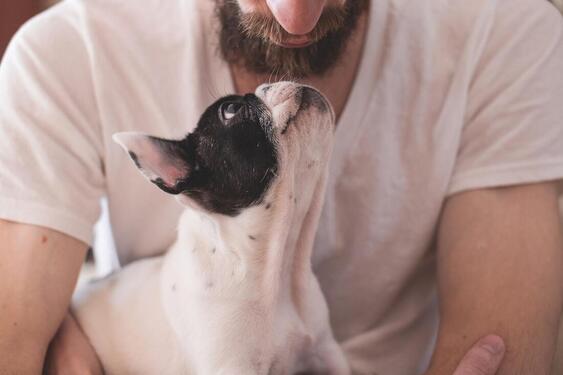
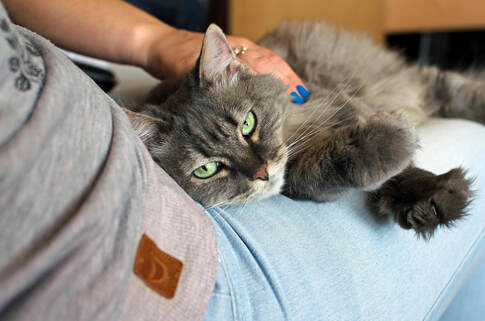
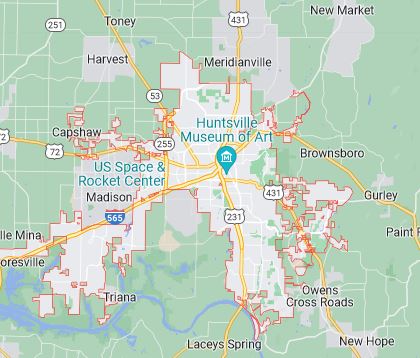
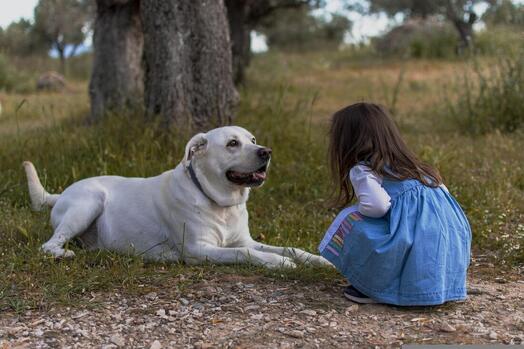
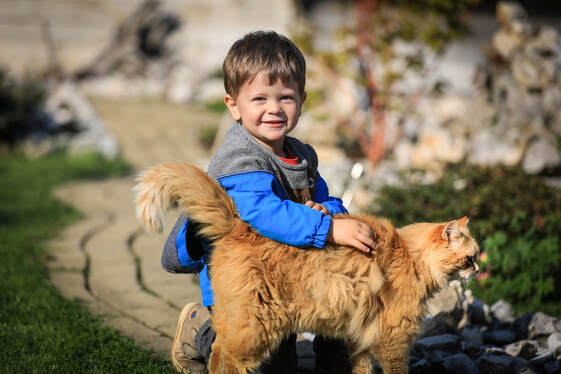
 RSS Feed
RSS Feed